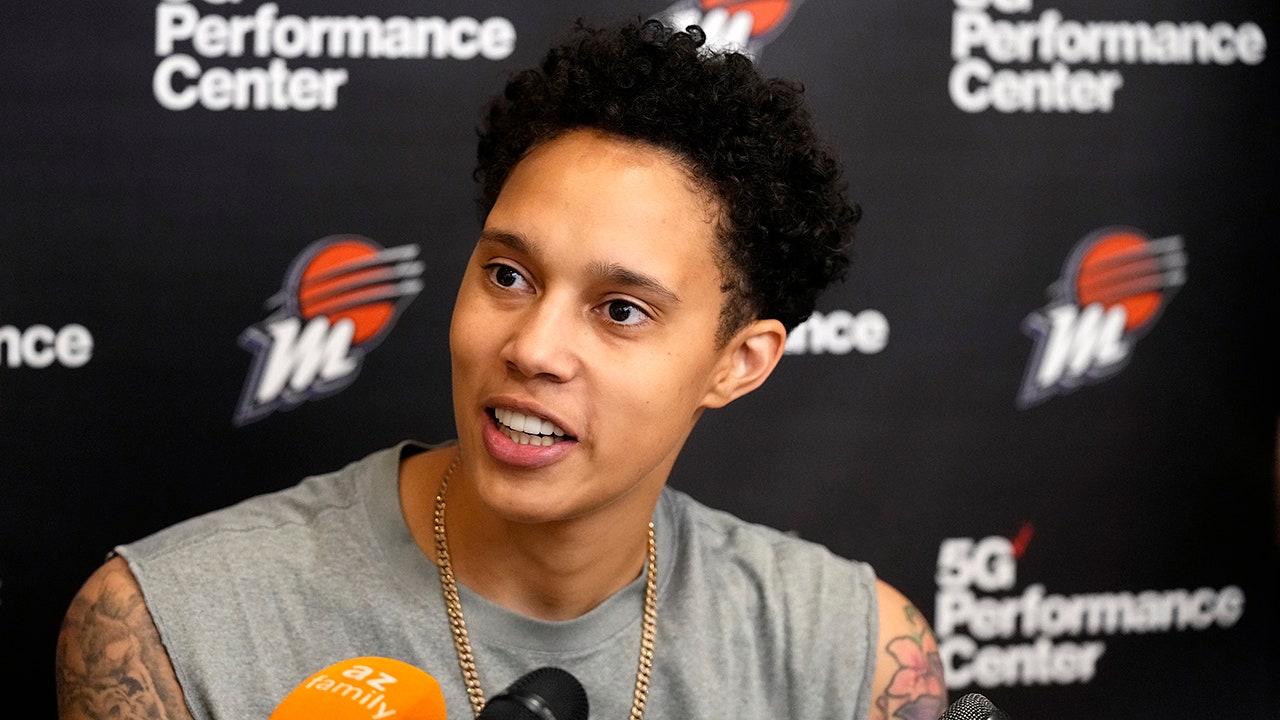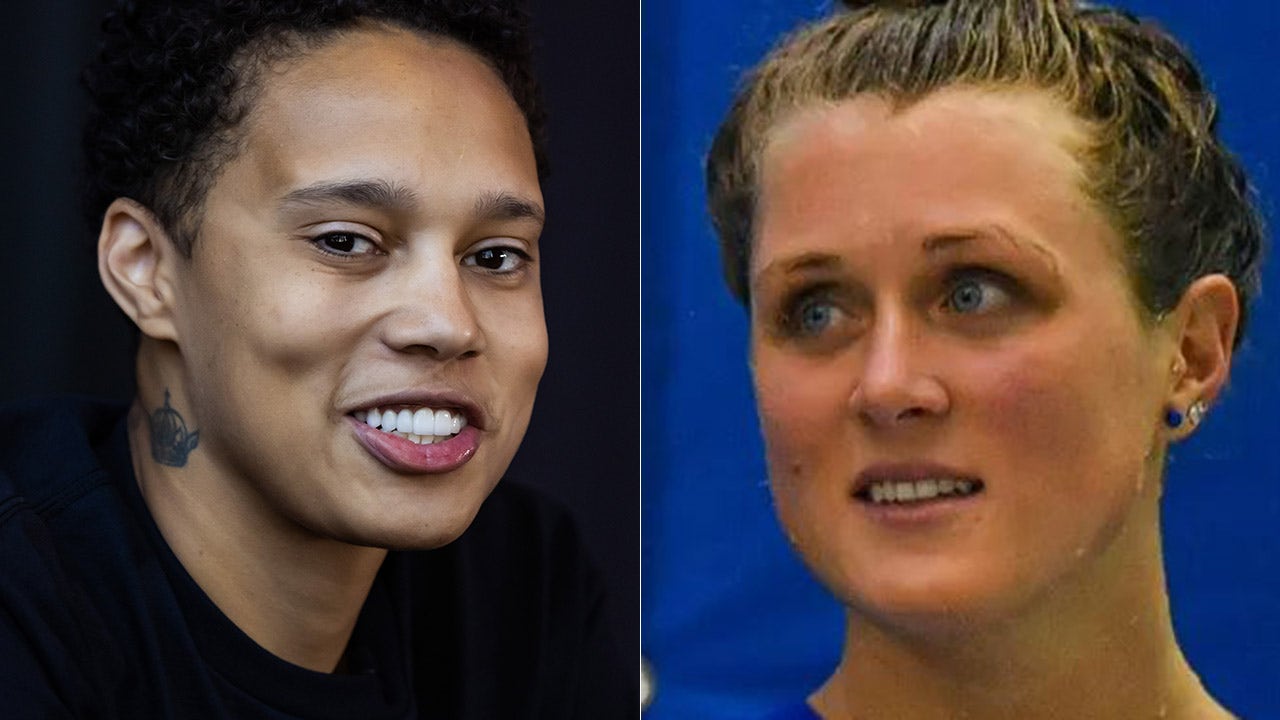Is Brittney Griner A Biological Man? Unpacking The Conversation
Let me drop a bombshell here: The conversation around Brittney Griner's identity has sparked debates worldwide. But let's set the record straight. Is Brittney Griner a biological man? That’s the question on everyone’s lips, and it’s time we dive deep into the facts, the science, and the truth behind the headlines. If you’ve been following this story, buckle up because there’s more to unpack than you might think.
Now, Brittney Griner is not just any name in the sports world. She’s a towering figure—literally and figuratively. As one of the most prominent athletes in women's basketball, her journey has been nothing short of extraordinary. But with greatness comes controversy, and the question of her biological identity has become a hot topic. So, why does this matter? Let’s explore why this conversation is important and why it’s everywhere right now.
Before we dive into the nitty-gritty, let’s establish one thing: This isn’t just about biology or anatomy. It’s about respect, understanding, and how we treat people who achieve greatness despite societal norms. Whether you’re a sports enthusiast or just curious about the debate, this article will give you all the answers you’re looking for—and maybe even some you didn’t know you needed.
Read also:Bolly4you Movies Bollywood The Ultimate Hub For All Your Bollywood Cravings
Who Is Brittney Griner? A Quick Bio
Before we tackle the big question, let’s get to know Brittney Griner better. Born on October 18, 1990, in Houston, Texas, Brittney grew up in a world where being different was both a challenge and a gift. Standing at 6'9", she’s an imposing figure on the court, but her talent goes far beyond her height. Griner’s journey to becoming one of the greatest players in women’s basketball history is a testament to her hard work, dedication, and resilience.
Her career highlights include playing for the Baylor Lady Bears in college, where she shattered records and won a national championship. She then went on to play professionally in the WNBA for the Phoenix Mercury and later the Las Vegas Aces. But her story isn’t just about basketball—it’s about breaking barriers and challenging perceptions.
Biography Table
| Full Name | Brittney Yvonne Griner |
|---|---|
| Date of Birth | October 18, 1990 |
| Place of Birth | Houston, Texas, USA |
| Height | 6'9" (206 cm) |
| Position | Center/Forward |
| WNBA Team | Phoenix Mercury (2013-2022), Las Vegas Aces (2023-present) |
Understanding the Biology Behind the Debate
So, here’s the million-dollar question: Is Brittney Griner a biological man? Let’s break it down. Biologically speaking, Griner was assigned female at birth. That’s a fact. However, her physical attributes, including her height and athletic prowess, have led some people to question her gender identity and biological makeup. It’s important to note that these questions often stem from a lack of understanding about human diversity.
Science tells us that biology isn’t as simple as male or female. There are variations in hormones, genetics, and physical characteristics that make each person unique. For example, some individuals may have higher levels of testosterone, which can influence muscle mass and athletic performance. But does that make them any less female? Absolutely not.
What Do the Experts Say?
According to medical professionals and researchers, it’s crucial to approach this topic with nuance. Dr. Sarah-Jane Paine, a leading endocrinologist, explains, “Human biology is incredibly complex, and we need to move away from binary thinking. Brittney Griner’s success isn’t due to her biology alone—it’s a combination of genetics, training, and sheer determination.”
- Griner’s height is a result of genetics, not gender.
- Higher testosterone levels are not uncommon in women and do not define gender.
- Athletic performance is influenced by a variety of factors, including training, diet, and mental focus.
Why Is This Question Being Asked?
The debate around Brittney Griner’s biological identity isn’t new. It’s been simmering for years, especially as she dominated the women’s basketball scene. Critics argue that her physical attributes give her an unfair advantage, while supporters point out that she’s simply an exceptional athlete. But why does this question keep coming up?
Read also:Hikaru Nahi The Queen Of Chess And Streaming
One reason is the societal obsession with fairness in sports. People want to believe that everyone is competing on a level playing field, and when someone excels far beyond the norm, it raises eyebrows. Another factor is the ongoing conversation about gender and identity in athletics. With more athletes coming forward about their transgender or intersex status, the lines between male and female categories are becoming blurred.
Is It About Fairness or Misunderstanding?
Let’s be real here. A lot of the criticism Griner faces isn’t about fairness—it’s about misunderstanding. Many people struggle to comprehend how someone can be both female and possess traits traditionally associated with males. But guess what? Biology doesn’t always fit neatly into boxes. And that’s okay.
As society evolves, so should our understanding of gender and identity. Instead of focusing on what makes someone different, we should celebrate their achievements and recognize the hard work that goes into becoming a world-class athlete.
Brittney Griner’s Response to the Controversy
Griner herself has addressed the controversy head-on. In interviews, she’s emphasized that her identity is hers alone to define. “I’m a woman,” she’s said repeatedly. And that should be enough. Her confidence and poise in the face of scrutiny are inspiring, and they remind us that identity is personal and deeply rooted in self-awareness.
She’s also used her platform to advocate for LGBTQ+ rights and gender equality. As someone who has faced discrimination throughout her career, Griner understands the importance of standing up for what’s right. Her advocacy work extends beyond sports, and it’s a testament to her leadership and integrity.
Key Takeaways from Her Statements
- Griner identifies as a woman and has consistently affirmed her gender identity.
- She believes in the importance of respecting everyone’s personal journey.
- Her advocacy work highlights the need for greater understanding and acceptance.
Breaking Down the Science of Gender and Identity
To truly understand the debate around Brittney Griner’s biological identity, we need to dive into the science of gender and identity. Gender is not just about biology—it’s a complex interplay of genetics, hormones, culture, and personal experience. For example, intersex individuals may have physical characteristics that don’t fit typical definitions of male or female. Similarly, transgender individuals may identify differently from the gender they were assigned at birth.
Research shows that there’s no single determinant of gender. While chromosomes and hormones play a role, they don’t tell the whole story. In fact, studies suggest that up to 1.7% of the global population may be intersex, highlighting the diversity of human biology.
What Does This Mean for Sports?
In the world of sports, the conversation around gender and identity is evolving. Governing bodies like the IOC and NCAA are rethinking their policies to ensure fairness while respecting athletes’ rights. For example, new guidelines allow transgender athletes to compete in the gender category they identify with, provided they meet certain criteria.
These changes reflect a growing understanding that gender isn’t binary and that athletes should be judged on their skills, not their biology. It’s a step in the right direction, but there’s still work to be done.
The Impact on Society
The debate around Brittney Griner’s biological identity has wider implications for society. It forces us to confront our biases and challenge outdated notions of gender. By questioning the binary framework, we open the door to greater inclusivity and acceptance.
For many people, Griner’s story is a reminder that success isn’t defined by biology. It’s about hard work, dedication, and the ability to overcome obstacles. Her journey inspires others to embrace their uniqueness and pursue their dreams, regardless of societal expectations.
How Can We Move Forward?
Here are a few ways we can foster greater understanding and acceptance:
- Educate ourselves about the science of gender and identity.
- Support athletes who challenge traditional norms.
- Advocate for policies that promote inclusivity and fairness in sports.
Conclusion: Let’s Celebrate Brittney Griner’s Legacy
In conclusion, the question “Is Brittney Griner a biological man?” is more complex than it seems. While biology plays a role, it’s only one piece of the puzzle. Griner’s identity as a woman is hers to define, and we should respect her journey and achievements. Her story is a powerful reminder that greatness comes in many forms, and we should celebrate diversity in all its shapes and sizes.
So, what can you do? Share this article with your friends and family. Start conversations about gender and identity. And most importantly, support athletes like Brittney Griner who are breaking barriers and changing the game. Together, we can create a world where everyone is free to be themselves.
Table of Contents
- Who Is Brittney Griner? A Quick Bio
- Understanding the Biology Behind the Debate
- Why Is This Question Being Asked?
- Brittney Griner’s Response to the Controversy
- Breaking Down the Science of Gender and Identity
- The Impact on Society
- How Can We Move Forward?
- Conclusion: Let’s Celebrate Brittney Griner’s Legacy
Article Recommendations


